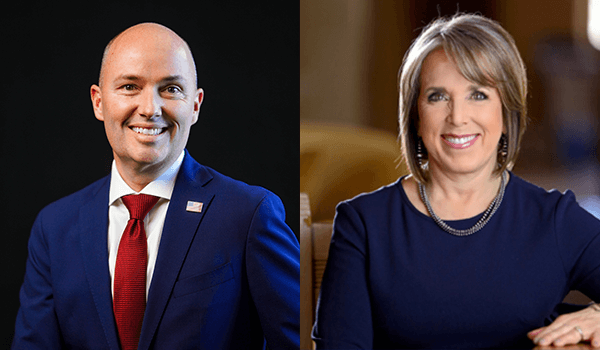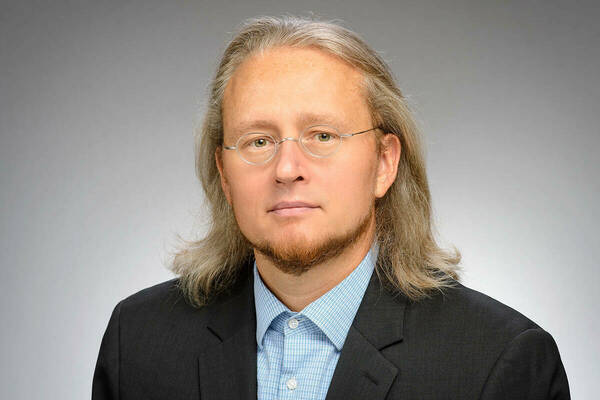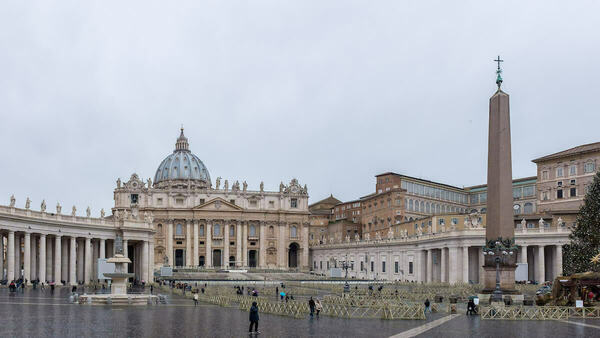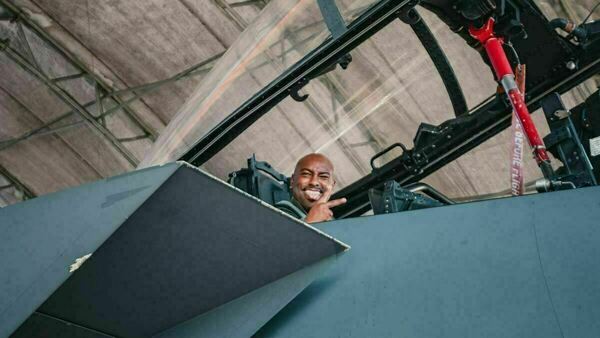Santiago Schnell, dean of Notre Dame’s College of Science, appointed as provost of Dartmouth

Santiago Schnell, the William K. Warren Foundation Dean of the College of Science at the University of Notre Dame, has accepted an appointment as provost at Dartmouth. He will depart Notre Dame at the end of June and begin his new role in July.
“This news is bittersweet,” said John T. McGreevy, the Charles and Jill Fischer Provost of Notre Dame. “While we heartily congratulate Santiago on being selected as the next provost at Dartmouth, we are also sorry to see him go. He has been a superb colleague and collaborator, a visionary leader for the College of Science and a true champion for advancing Notre Dame and its mission as the leading global Catholic research university. We thank him for his service and wish him every success in his new role.”
Schnell, who has served as dean since 2021, led the College of Science in advancing its research enterprise, strengthening undergraduate and graduate education and deepening public engagement and international partnerships.
A renowned mathematical biologist, Schnell has also served as scientific director of Notre Dame’s Boler-Parseghian Center for Rare Diseases and holds tenured appointments in the Departments of Biological Sciences and Applied and Computational Mathematics and Statistics. He is a member of the American Academy of Sciences and Letters and a fellow of the Royal Society of Chemistry, Royal Society of Biology, the American Association for the Advancement of Science, the Society for Mathematical Biology, the Latin American Academy of Sciences and the Royal Society of Medicine.
Among his many accomplishments as dean, Schnell co-launched the Bioengineering & Life Sciences (BELS) Initiative with College of Engineering Dean Patricia Culligan, expanded Notre Dame’s long-standing leadership in rare disease research and advocacy and built robust interdisciplinary collaborations across departments and with international partners, notably forging a partnership with the University of Oxford’s Doctoral Training Centre.
Under Schnell’s tenure, the College of Science significantly expanded graduate and postdoctoral programs, establishing the Society of Science Fellows to attract top postdoctoral talent and implementing new initiatives to enhance professional development and career preparation. He also strengthened undergraduate science education, including creating the nation’s first minor in rare disease patient advocacy and growing research opportunities for students across all scientific disciplines.
Schnell placed particular emphasis on public science engagement, creating new platforms for sharing Notre Dame’s research with broader audiences and elevating the college’s national and global visibility. He established the first professorship for the public understanding of science in the U.S., created the College of Science’s Christmas Lecture series and inaugurated the Rev. Carrier Medal, an international accolade recognizing excellence in science.
“Our work in the College of Science has been animated by a simple but profound ideal: ‘Spes in Caelis, Pes in Terris’ — Hope in Heaven, Feet on Earth,” Schnell said. “It has been a privilege to imagine boldly, act humbly and pursue science in service of society and discovery. Though I step away from the Dome, my heart will forever love thee, Notre Dame.”
An interim dean for the College of Science will be appointed for the 2025-26 academic year. The University will convene a search committee as outlined in the Academic Articles and will work with executive search firm Isaacson, Miller to lead an international search for a new dean.
Latest ND NewsWire
- Notre Dame Democracy Initiative hosts bipartisan conversation with Western state governorsTwo Western state governors known to work across the aisle on policy issues such as water, housing and energy will visit the University of Notre Dame for a fireside chat about how Western state pragmatism can serve as a model for the country to overcome polarization.
- In new research, Roy Scranton explores climate change and the limits of human progressIn his most recent book, “Impasse: Climate Change and the Limits of Progress,” Scranton, an associate professor of English, defines the impasse he sees as “not only political and institutional, but cognitive, existential and narrative” and asserts that the only path forward is through embracing what he terms ethical pessimism. “A lot of people confuse pessimism with nihilism, apathy and despair,” Scranton said. “But pessimism is actually about recognizing our limits, letting go of unrealistic goals, finding solidarity in the fact of human suffering and doing what you can now, not in some utopian future.
- Notre Dame MBA launches deferred admission programThe Notre Dame MBA Deferred Admission Program allows candidates with little or no work experience, including college seniors, to secure admission before reaching the recommended three years of work experience to enroll.
- ‘Prebunking’ false election claims may boost trust in electionsIn recent years, democracies worldwide have seen a growing erosion of trust in election outcomes and institutions, driven in part by fears of widespread fraud. New Notre Dame research finds that “prebunking” — providing accurate information before false claims spread — boosts trust in elections more effectively than traditional fact-checking.
- ND experts on the canonization of Carlo AcutisAs the Church awaits the ceremony in St. Peter’s Square, where Pope Leo XIV will formally declare Acutis a saint, University of Notre Dame experts Kathleen Sprows Cummings, Brett Robinson and Timothy O’Malley reflect on his life and his path to sainthood.
- MBA student and alumnus to take part in Fighting Irish flyoverNotre Dame MBA student Maximo Navarro takes flight for the Fighting Irish football season opener.













